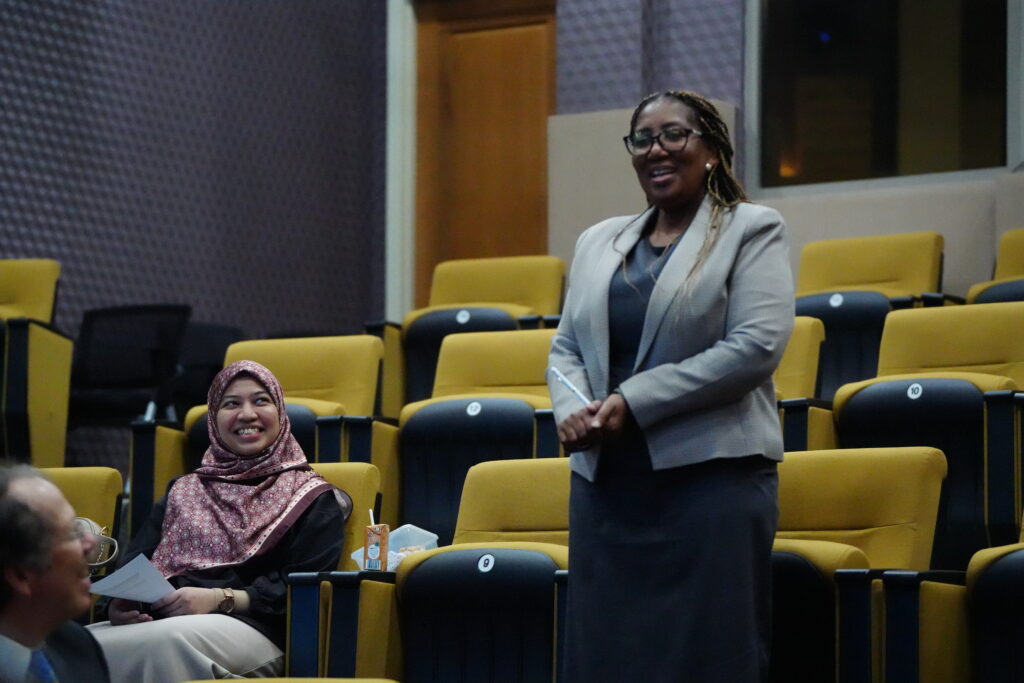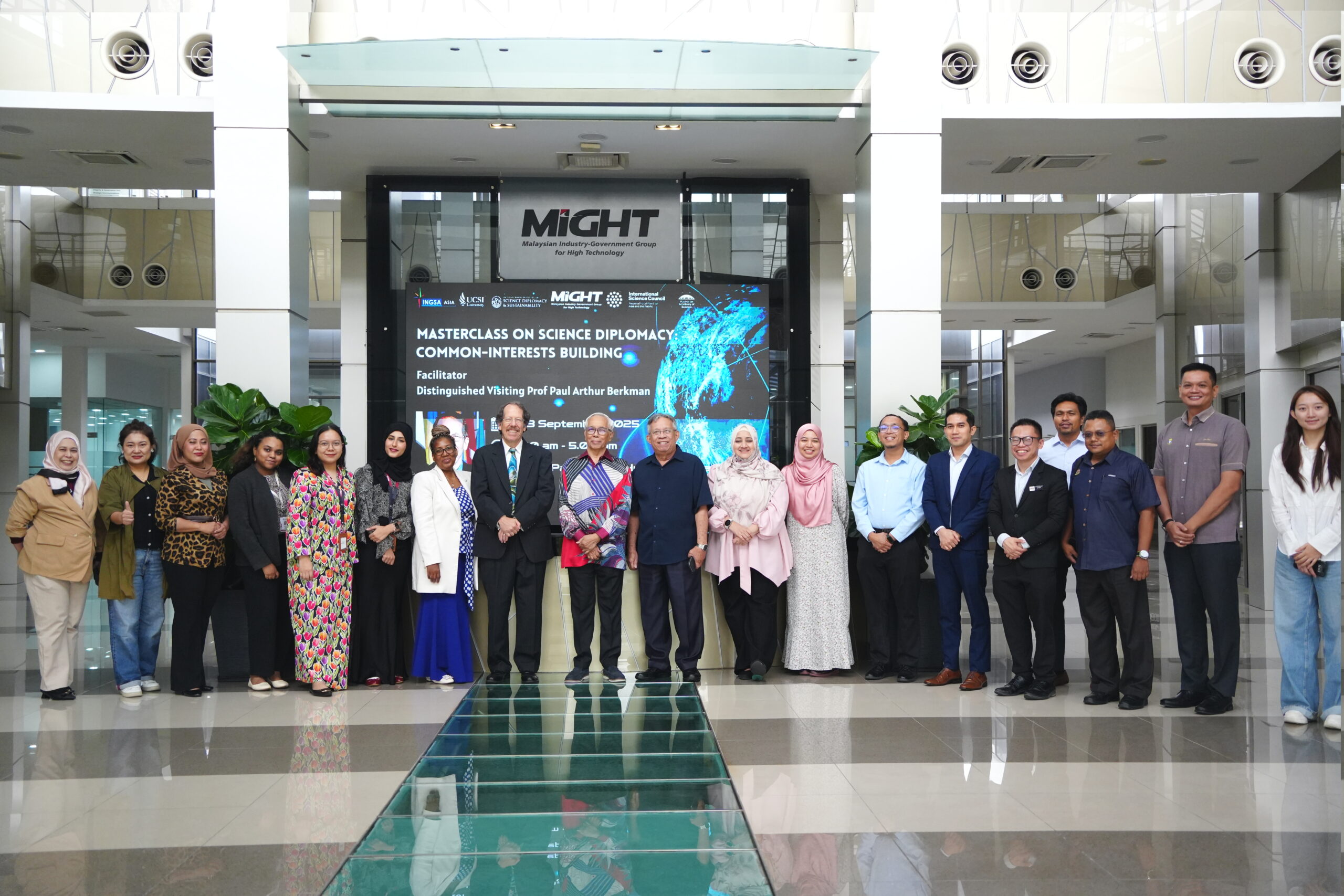INGSA-Asia cohosts Masterclass on Science Diplomacy: Common Interests Building by Prof Paul Arthur Berkman
On 2-3 September 2025, INGSA-Asia in collaboration with ISC Regional Focal Point for Asia and the Pacific (ISC RFP-AP), Malaysian Industry-Government Group for High Technology (MIGHT) and UCSI University’s International Institute of Science Diplomacy and Sustainability (UCSI-IISDS) hosted a two-day Masterclass on Science Diplomacy: Common Interests Building at MIGHT Partnership Hub, Cyberjaya Malaysia that was facilitated by renowned science diplomacy expert, Prof Paul Arthur Berkman.
Patron of INGSA-Asia, Distinguished Prof. Emeritus Tan Sri Dr. Zakri Abdul Hamid, opened the masterclass with remarks on the vital role of science diplomacy in today’s complex global landscape, highlighting its power to bridge divides and inform evidence-based policymaking. He then introduced Prof. Berkman to the 20 participants representing academia, government, industry, and key ministries, and facilitated an engaging icebreaking session that set a collaborative tone.
Over the two days, Prof. Berkman guided participants through the conceptual foundations of science diplomacy—linking science, policy, and diplomacy to address shared challenges. Day 1 explored the fundamentals of science diplomacy, its real-world applications, and the importance of balancing national priorities with common regional and global interests. Interactive workshops examined decision-making under different time scales, using case studies such as the COVID-19 response.
Day 2 focused on practical tools for building common interests, introducing frameworks like the Pyramid of Informed Decision making and exercises in dialogue across diverse stakeholders. Sessions on conflict resolution and common-interest building highlighted the value of transdisciplinary approaches and the need for sustained cooperation “for the benefit of all on Earth across generations.” A key highlight of the Masterclass was the The Common-Interest Building: Training Game, an interactive exercise designed to help participants apply the United Nations Sustainable Development Goals in a simulated negotiation setting. The game encouraged collaborative thinking and engaging knowledge exchange, tested strategies for reconciling diverse perspectives, and demonstrated how evidence-based dialogue can translate shared priorities into actionable policies.
Key outcomes of the masterclass included a clearer understanding of science diplomacy as a mechanism to integrate scientific evidence into policy and a shared commitment to applying these concepts in participants’ respective fields. By identifying overlapping priorities and exploring methods to transform data into collective action, the group laid the groundwork for future ASEAN collaborations that balance national needs with regional and global well-being.
This masterclass exemplified the power of science diplomacy to cultivate informed, cooperative decision-making across sectors and borders.




Photos courtesy of MIGHT Malaysia.


